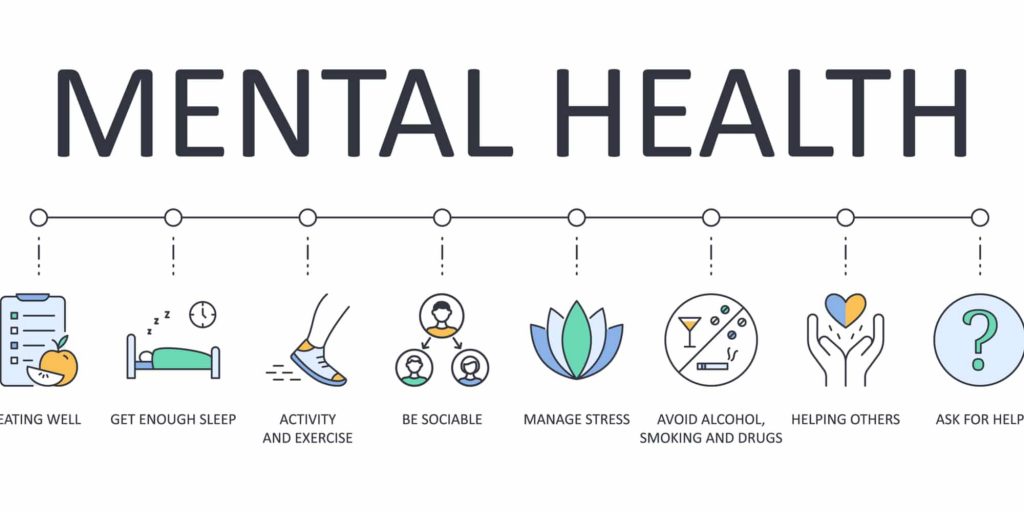Contents
Images References :
Irritable bowel syndrome (IBS) is a common functional gastrointestinal disorder that affects millions of people worldwide. It is characterized by a range of symptoms, including abdominal pain, cramping, bloating, gas, and diarrhea or constipation.
Although the exact cause of IBS is unknown, it is thought to be related to a combination of factors, including dysregulated gut-brain interactions, imbalances in gut microbiota, and genetic susceptibility. Conventional treatments for IBS typically focus on symptom management and may include medications, lifestyle modifications, and dietary changes.
In recent years, there has been a growing interest in holistic approaches to managing IBS. Holistic treatments aim to address the underlying causes of the condition and promote overall well-being. These treatments often involve a combination of therapies that address the physical, emotional, and psychological aspects of IBS.
Holistic treatments for managing irritable bowel syndrome
Holistic treatments for IBS aim to address the underlying causes of the condition and promote overall well-being. These treatments often involve a combination of therapies that address the physical, emotional, and psychological aspects of IBS.
- Integrated approach
- Personalized treatment plans
Holistic treatments for IBS typically involve a combination of therapies, such as dietary changes, stress management techniques, and herbal remedies. The specific treatments that are recommended will vary depending on the individual patient’s needs and preferences.
Integrated approach
An integrated approach to managing IBS involves addressing the condition from multiple perspectives, including medical, nutritional, psychological, and lifestyle factors. This approach recognizes that IBS is a complex condition that can be influenced by a variety of factors, and that a multifaceted treatment plan is often necessary to achieve optimal results.
One of the key aspects of an integrated approach is collaboration between the patient and healthcare team. The patient’s input and preferences should be taken into account when developing a treatment plan, and the healthcare team should be willing to work with the patient to find the best possible approach.
Another important aspect of an integrated approach is the use of evidence-based therapies. This means using treatments that have been shown to be effective in research studies. There is a growing body of evidence to support the use of holistic therapies for IBS, including dietary changes, stress management techniques, and herbal remedies.
Finally, an integrated approach to IBS management should be individualized to the patient’s specific needs and preferences. There is no one-size-fits-all approach to IBS treatment, and what works for one patient may not work for another. The healthcare team should work with the patient to develop a treatment plan that is tailored to their individual needs.
An integrated approach to managing IBS can be an effective way to improve symptoms and overall well-being. By addressing the condition from multiple perspectives, patients can achieve a more comprehensive and holistic approach to their care.
Personalized treatment plans
Personalized treatment plans are an important part of an integrated approach to managing IBS. This is because IBS is a complex condition that can manifest differently in different people. What works for one person may not work for another, so it is important to tailor the treatment plan to the individual patient’s needs.
- Dietary changes
Dietary changes are a cornerstone of IBS management. Many people with IBS find that certain foods trigger their symptoms. Identifying and avoiding these trigger foods can help to reduce symptoms and improve overall well-being.
- Stress management techniques
Stress is a common trigger for IBS symptoms. Learning effective stress management techniques can help to reduce stress levels and improve IBS symptoms.
- Herbal remedies
Some herbal remedies have been shown to be effective in reducing IBS symptoms. These remedies may work by reducing inflammation, improving digestion, or reducing stress.
- Other therapies
Other therapies that may be helpful for IBS include acupuncture, massage therapy, and yoga. These therapies can help to reduce stress, improve digestion, and promote overall well-being.
The best way to develop a personalized treatment plan for IBS is to work with a healthcare practitioner who is experienced in treating the condition. The healthcare practitioner can help to identify the patient’s individual triggers and develop a treatment plan that is tailored to their specific needs.
FAQ
Here are some frequently asked questions about holistic treatments for managing irritable bowel syndrome:
Question 1: What is the best holistic treatment for IBS?
Answer 1: There is no one-size-fits-all answer to this question, as the best holistic treatment for IBS will vary depending on the individual patient’s needs and preferences. However, some common holistic treatments for IBS include dietary changes, stress management techniques, and herbal remedies.
Question 2: Are holistic treatments for IBS effective?
Answer 2: Yes, holistic treatments for IBS can be effective in reducing symptoms and improving overall well-being. However, it is important to note that these treatments are not a cure for IBS, and they may not be effective for everyone.
Question 3: Are holistic treatments for IBS safe?
Answer 3: Most holistic treatments for IBS are considered safe when used as directed. However, it is always important to talk to a healthcare practitioner before starting any new treatment, especially if you have other health conditions or are taking medications.
Question 4: How long does it take for holistic treatments for IBS to work?
Answer 4: The time it takes for holistic treatments for IBS to work varies depending on the individual patient and the severity of their symptoms. Some people may notice an improvement in their symptoms within a few weeks, while others may need to be patient and consistent with their treatment plan for several months before they see significant results.
Question 5: Can holistic treatments for IBS be used in conjunction with conventional treatments?
Answer 5: Yes, holistic treatments for IBS can be used in conjunction with conventional treatments. In fact, many healthcare practitioners recommend a combination of holistic and conventional treatments for the best possible results.
Question 6: Where can I find a healthcare practitioner who specializes in holistic treatments for IBS?
Answer 6: There are a number of healthcare practitioners who specialize in holistic treatments for IBS. You can find a practitioner in your area by searching online or asking for recommendations from friends or family members.
Closing Paragraph for FAQ
These are just a few of the most frequently asked questions about holistic treatments for IBS. If you have any other questions, please talk to your healthcare practitioner.
In addition to the information provided in this FAQ, here are a few tips for managing IBS holistically:
Tips
Here are a few practical tips for managing IBS holistically:
Tip 1: Identify and avoid trigger foods.
Many people with IBS find that certain foods trigger their symptoms. Identifying and avoiding these trigger foods can help to reduce symptoms and improve overall well-being. Common trigger foods include dairy products, wheat, gluten, soy, and certain fruits and vegetables. You can identify your trigger foods by keeping a food journal and tracking your symptoms.
Tip 2: Eat a healthy diet.
Eating a healthy diet is important for overall health and well-being, but it can also be helpful for managing IBS. A healthy diet for IBS includes plenty of fruits, vegetables, whole grains, and lean protein. It is also important to limit processed foods, sugary drinks, and unhealthy fats.
Tip 3: Manage stress.
Stress is a common trigger for IBS symptoms. Learning effective stress management techniques can help to reduce stress levels and improve IBS symptoms. Some helpful stress management techniques include yoga, meditation, deep breathing exercises, and spending time in nature.
Tip 4: Get regular exercise.
Regular exercise is another helpful way to manage IBS symptoms. Exercise can help to reduce stress, improve digestion, and promote overall well-being. Aim for at least 30 minutes of moderate-intensity exercise most days of the week.
Closing Paragraph for Tips
These are just a few tips for managing IBS holistically. If you are struggling to manage your IBS symptoms, talk to your healthcare practitioner. They can help you to develop a personalized treatment plan that is right for you.
Holistic treatments for IBS can be an effective way to reduce symptoms and improve overall well-being. By following these tips, you can take a proactive approach to managing your IBS and living a healthier, more fulfilling life.
Conclusion
Holistic treatments for irritable bowel syndrome (IBS) offer a comprehensive and effective approach to managing the condition. By addressing the underlying causes of IBS and promoting overall well-being, holistic treatments can help to reduce symptoms and improve quality of life.
The main points of holistic treatments for IBS include:
- An integrated approach that addresses the physical, emotional, and psychological aspects of IBS.
- Personalized treatment plans that are tailored to the individual patient’s needs and preferences.
- A focus on dietary changes to identify and avoid trigger foods.
- Stress management techniques to reduce stress levels and improve IBS symptoms.
- Herbal remedies to reduce inflammation, improve digestion, or reduce stress.
Closing Message
If you are struggling to manage your IBS symptoms, talk to your healthcare practitioner about holistic treatments. Holistic treatments can be an effective way to reduce symptoms and improve your overall quality of life.




